FORT LEE, Va., (Army News Service, March 13, 2008) - The Army's top chefs gathered at the Army Center of Excellence, Subsistence, here this week to trade recipes, techniques, join the Culinary Arts Team and become better chefs.
The 33rd U.S. Army Culinary Arts Competition serves as a training environment for the chefs trying to earn gold, silver and bronze awards. A roomful of competitors gathered March 9 for an hour-long tutorial in preparation for the Armed Forces and Junior Chef of the Year events.
Staff Sgt. Nolan Kniss, the 2007 Senior Chef of the Year, served as chief instructor, with Staff Sgt. Steven Broome assisting. Both seasoned competitors tried out Wednesday for the U.S. Army Culinary Arts Team. Their experience also serves to assist and educate other chefs, as the two-week competition includes a variety of classes, such as hot and cold sauces, tallow and garnish.
Sgt. 1st Class Rene Marquis, USACAT captain and U.S. Army enlisted aide to the commander at U.S. Central Command, emphasized the learning aspect of the competition and reminded chefs to use each others' expertise.
"I am here to teach, coach and mentor chefs in all branches of the Armed Forces," said Marquis, who offered plenty of advice on devising a menu, working with a mystery basket of ingredients and organizing the work space.
"The thing to remember is that you walk into the kitchen with 40 points and it is up to the chef to keep all 40 points," he said.
Competitors are judged on sanitation, organization and culinary techniques - everything from proper poaching to using the right pots and pans to preparing different food items. At the end of each competitor's submission, culinarians stand before judges to receive constructive criticism, encouragement, suggestions to improve and advice on how to avoid pitfalls in the next round.
"The competitors should go away feeling good because they know what to do to make themselves better," said Chief Warrant Officer 4 Robert Sparks, ACES culinary skills division chief.
Every minute the plate is late to the judging table is a point deducted from a chef's score.
"If you're going to be late, be late for a reason," said Marquis. "I'd prefer taking that extra minute being late if it means serving a perfect plate."
"Stay calm and use your instincts," Kniss advised the chefs. "It's all about keeping your composure in the kitchen."
Perhaps equally important is that if the competitors do not win a medal, they gain something from the experience, said judge Chef Geoffrey Acott, of the British Defence Food Services School.
"I've said to them many times, first of all to enjoy themselves because if they are not enjoying themselves they shouldn't be here. Secondly, to learn, because if they don't go back a better chef than when they came, they've just wasted time," he said.
Sgt. Steven Behr is representing Fort Carson, Colo., in the Armed Forces Chef of the Year event. While he had experience competing in the event last year, he said attending the class gave him some techniques he will apply in competition.
"It's all about learning from one another," said Behr. "For the most part, I'm familiar with what's going on, so I spend a lot of time with my own teammates helping them prepare for their events."
Some of the most experienced competitors are a last-minute addition to the roster - a "Dream Team" of Fort Lee's own food-service instructors: Staff Sgt. Edwin Ezell, Staff Sgt. Marcus Hughes, Staff Sgt. DeAndre Brown and Staff Sgt. Christopher Gallien.
As instructors, they teach younger Soldiers how to work as a team inside the mobile kitchen trailer. Neither Hughes nor Ezell, the team captain, had worked together in a competitive format.
"We had about five minutes before being given the task of preparing a meal," said Ezell. "That's what we teach our students. If you know your craft, it doesn't matter where you are, or how much time you're given. You're given the task and you do it."
Their prime rib meal was enjoyed by classes from the Petroleum and Water Department. Seeing the Fort Lee sign outside the MKT and being served by the instructors elicited shouts of encouragement from the students.
"The meal was great," said Pvt. Christopher Lujano, a petroleum specialist student. "Everything on it was awesome. The steak was cooked perfectly. It was a treat for us to come out here and experience this."
The U.S. Army Culinary Arts Competition has more than 40 categories for chefs to compete. For more deatails see: <a href="http://www.quartermaster.army.mil/ACES/programs/competition/annual/annual_competition.html"target=_blank>www.quartermaster.army.mil/ACES/programs/competition</a>.
(Mike Strasser and Jorge Gomez write for the "Fort Lee Traveler." Their reports were compiled for this article.)
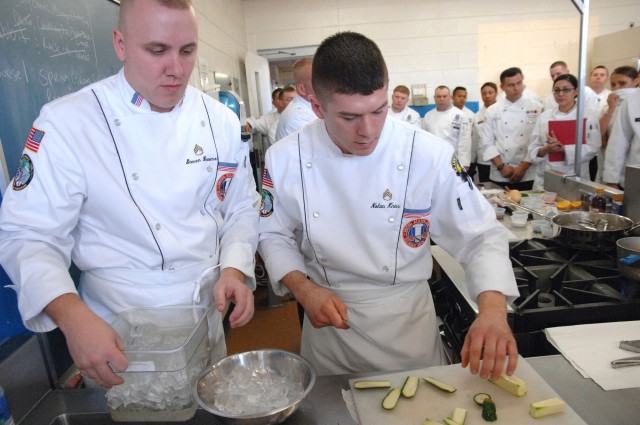
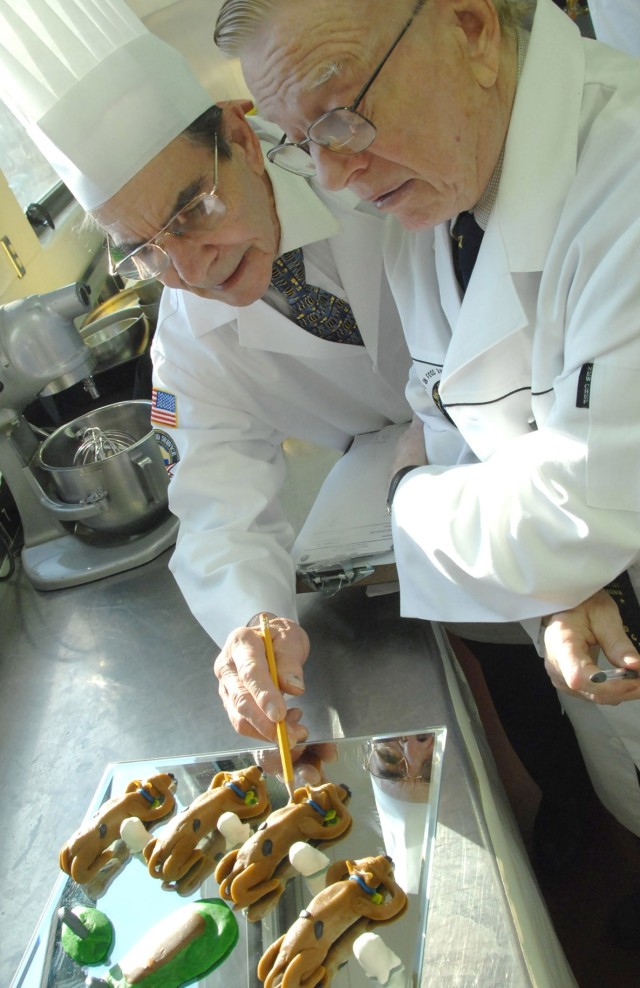
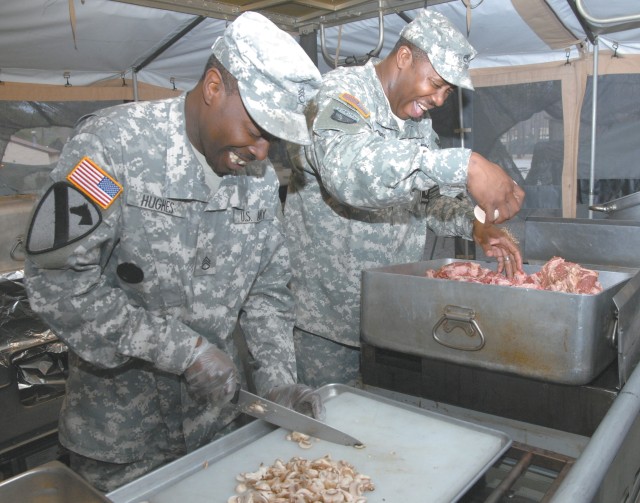

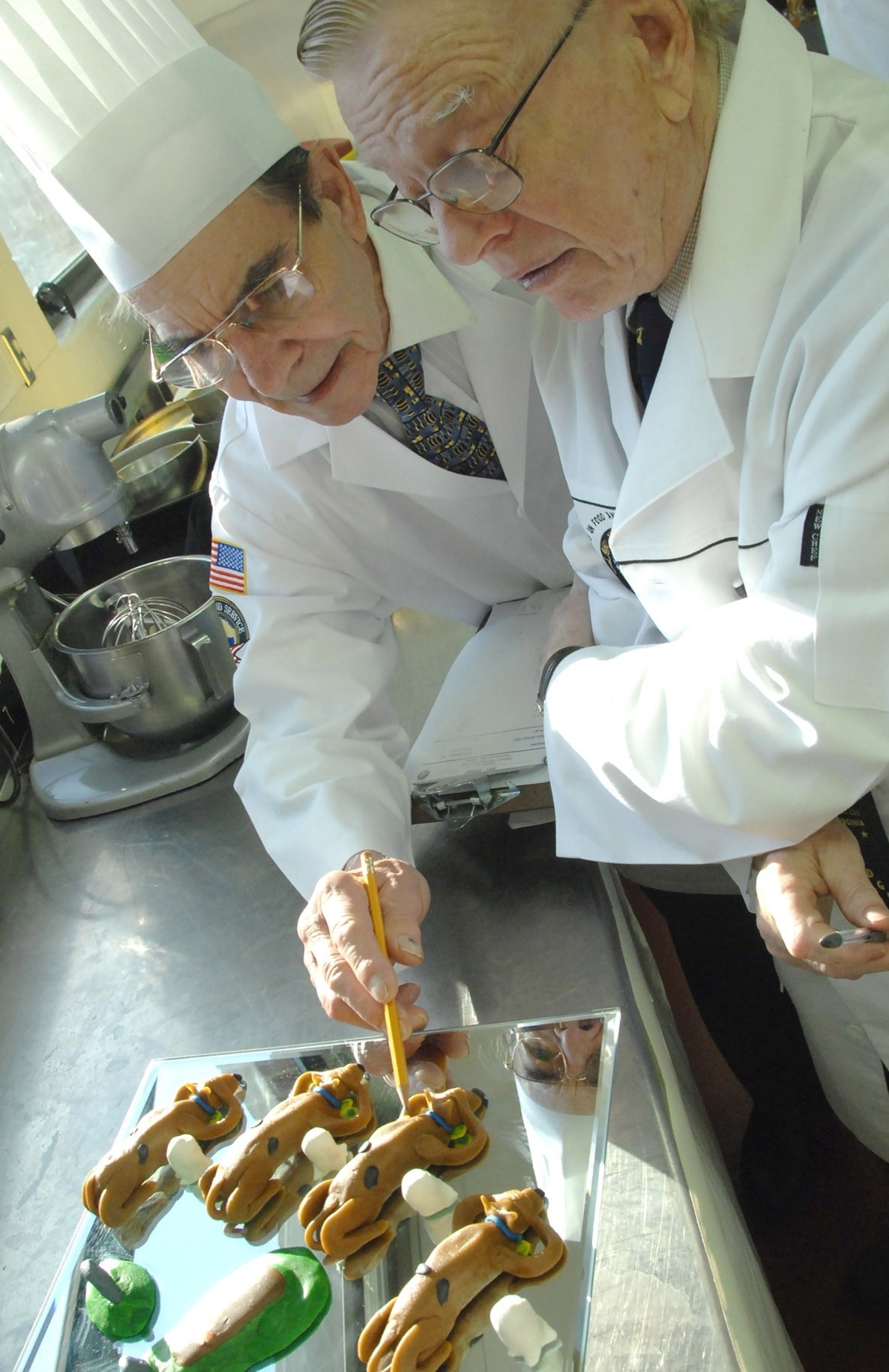
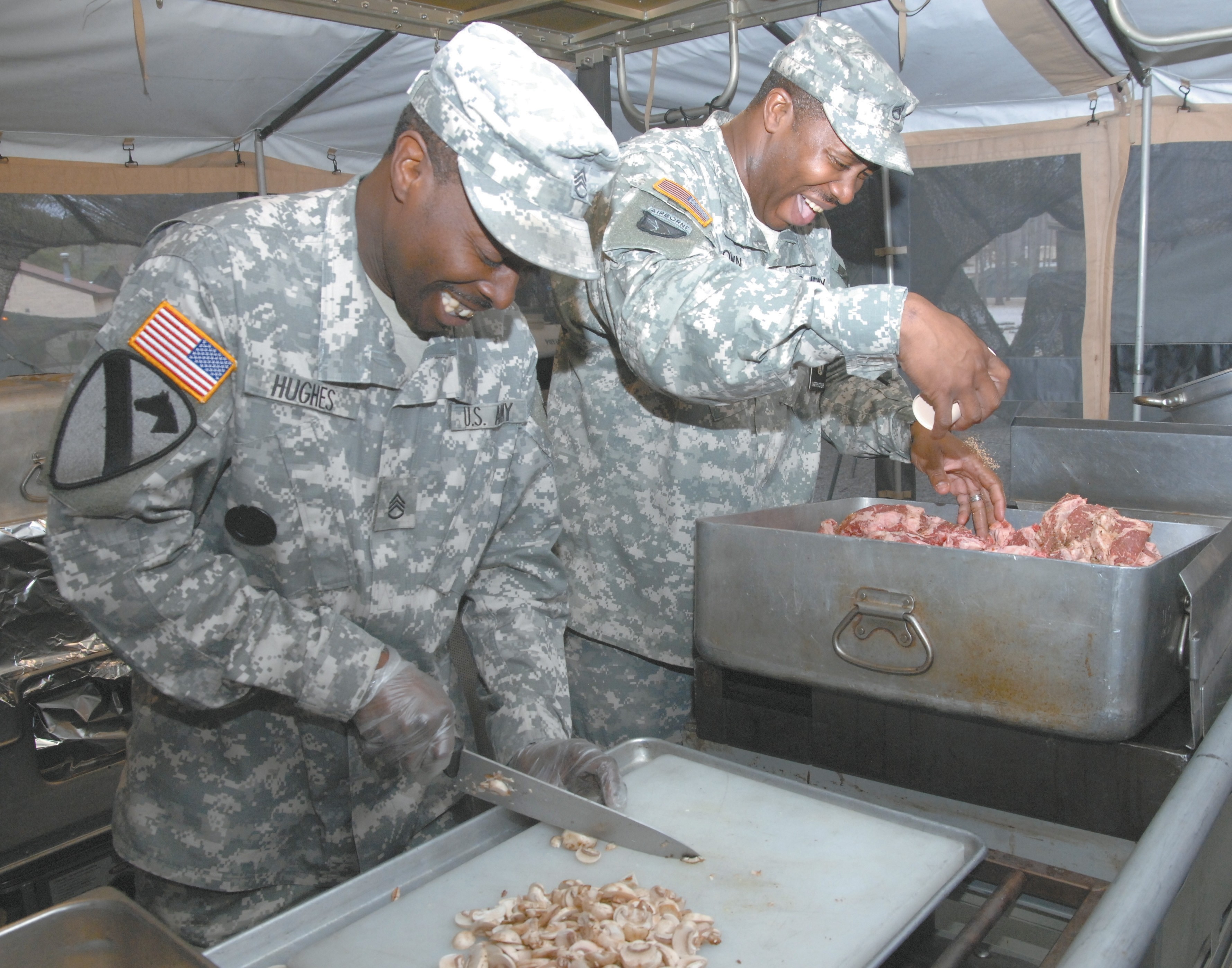
Social Sharing